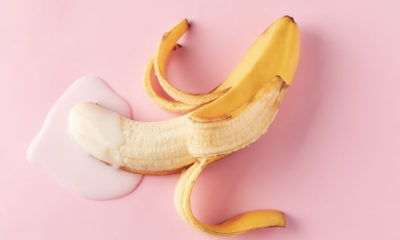Health & Wellness
Masturbation Effects On Kidney: Does Excess Masturbation Cause Damage?
Masturbation is the act of stimulating one’s genitalia for sexual gratification, which may or may not result in an orgasm. Masturbation is typical in both men and women of all ages and contributes to the development of good sex.
Published
2 years agoon
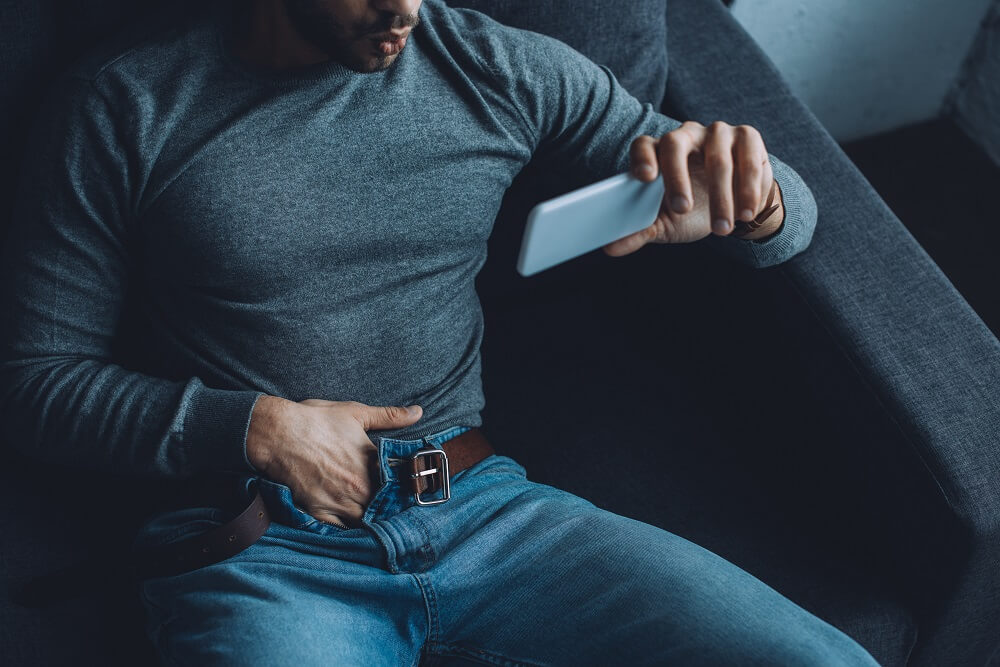

Masturbation is the act of stimulating one’s genitalia for sexual gratification, which may or may not result in an orgasm.
Masturbation is typical in both men and women of all ages and contributes to the development of good sex.
“There are several reasons why people masturbate.”
These include enjoyment, fun, and the release of tension. While some people like to masturbate alone, others prefer to do so with a partner.
Masturbation has few negative effects and is a healthy and typical sexual behavior. Most of the odd claims about masturbation, such as turning blind, are unfounded.
Does Masturbation Affect Kidney?


A heat pack and nonsteroidal anti-inflammatory drugs can help you get rid of this pain.
Another option is that you have kidney stones or any other kidney problem that you were unaware of until right after you masturbated.
When masturbating, it’s possible that you could get a urinary tract infection if you don’t practice good hygiene (UTI).
Because they have a shorter urethra, people with vaginas are considerably more prone to develop a UTI than those with penises.
UTI Signs and Symptoms Include:
- Urinating causes burning.
- often feel the need to urinate.
- stomach ache.
- urine that smells vile.
- murky urine
- urine with blood in it.
UTIs can spread to your kidneys if ignored. A kidney infection can be dangerous and has to be treated right away by a doctor.
In addition to the signs of a bladder infection, it may also result in:
- fever.
- a severe lower back discomfort.
- nausea.
- Vomiting.
However, it’s a good idea to get medical assistance as soon as you can for a proper assessment and treatment if you have any form of alarming pain after masturbating.
Advantages of Masturbation:
Despite common misconceptions that portray masturbation as harmful, engaging in this activity actually yields numerous positive effects on the body.
When you masturbate, it triggers the release of significant hormonal levels, each with distinct benefits for overall well-being:
1. Testosterone:
Description: A male sex hormone originating in the testicles.
Effects: Regulates sex drive, muscle development, bone mass, and fat distribution.
2. Cortisol:
Description: Known as the stress hormone.
Benefits: Enhances the immune system, aiding the body’s ability to respond to stress.
3. Endorphins:
Description: Feel-good chemicals linked to pain reduction.
Effects: Increases during orgasm, contributing to an improved mood.
4. Prolactin:
Description: Regulates emotions, enhancing stress management.
Benefits: Improves the ability to cope with stress, fostering emotional well-being.
5. Oxytocin:
Description: Often referred to as the “love hormone.”
Effects: Associated with social bonding and mental well-being, plays a role in sexual response.
6. Dopamine:
Description: A hormone associated with the brain’s reward system.
Effects: Influences pleasure; insufficient dopamine can contribute to depression.


Hormonal shifts induced by masturbation offer several health benefits:
1. Enhanced Mood:
Details: Masturbation boosts mood by elevating endorphin, oxytocin, and dopamine levels.
Impact: Counteracts depression and aids in decision-making.
2. Calming Effects:
Details: Prolactin, in conjunction with other feel-good chemicals, assists in emotional regulation.
Impact: Facilitates calming down from negative moods and reducing anger.
3. Immunity Boost:
Details: Masturbation releases cortisol, enhancing immune response.
Impact: Increases germ-fighting white blood cells, contributing to immune strength.
4. Anxiety Reduction and Stress Relief:
Details: Masturbation helps release tension, reducing stress levels and anxiety.
Impact: Acts as a stress-relief mechanism.
5. Improved Sleep:
Details: Post-orgasmic hormonal changes promote relaxation.
Impact: Assists in falling asleep, aiding individuals with sleep difficulties.
6. Promotion of Sexual Health:
Details: Masturbation is crucial for individual and societal sexual health.
Impact: Safely explores personal desires, potentially enhancing confidence in sexual experiences and contributing to sexual health education, reducing unwanted pregnancies, and preventing STI transmission.

“Self improvement is masturbation.” ~ Chuck Palahniuk
Side Effects of Masturbation:
Masturbation is a normal and healthy sexual activity that many people engage in. However, like any behavior, excessive or frequent masturbation can lead to negative side effects. In this article, we will explore the potential side effects of masturbation and what you can do to minimize the risks.
- Physical Side Effects: Excessive or rough masturbation can cause physical side effects such as skin irritation, chafing, and soreness. In some cases, it can also lead to more serious conditions such as genital injuries or infections.
- Psychological Side Effects: Masturbation can also have psychological side effects, such as feelings of guilt or shame. This can lead to negative self-esteem and a decrease in overall well-being.
- Interference with Daily Life: Excessive masturbation can also interfere with daily life, such as affecting work or relationships. This can lead to feelings of stress and anxiety.
- Decreased Sexual Function: In some cases, excessive masturbation can lead to decreased sexual function, such as decreased sexual desire or difficulty achieving or maintaining an erection.
- Dependence: Masturbation can become a habit that is difficult to break, leading to a dependence on the behavior. This can interfere with daily life and lead to negative consequences.
Conclusion
In conclusion, masturbation is a normal and healthy sexual activity, but excessive or frequent masturbation can lead to negative side effects. It is important to be mindful of your behavior and to take steps to minimize the risks. If you are experiencing negative side effects from masturbation, it is important to seek help from a healthcare professional. With the right support and guidance, you can overcome the negative consequences of excessive masturbation and improve your overall well-being.
Sometimes people can masturbate more than they want, which can lead to:
- Miss their jobs or significant occasions
- Interfere with a person’s ability to go about their everyday business
- Interfere with their relationships
- It provides a way to get away from reality.
FAQs
1. Can masturbation cause back pain?
Back pain is a common issue that affects many people, and there are various reasons why it may occur. One question that often arises is whether or not masturbation can cause back pain. The answer is not straightforward, as it depends on the individual and the specific circumstances.
In some cases, back pain may be a result of improper posture or positioning during masturbation. For example, if you tend to slouch or lean forward while engaging in this activity, it can put strain on your back muscles, leading to discomfort. Additionally, if you use a hard surface or engage in excessive or prolonged masturbation, it can also contribute to back pain.
On the other hand, some people may experience back pain due to underlying medical conditions, such as a herniated disc or spinal stenosis, which are unrelated to masturbation. In these cases, the pain may be exacerbated by certain sexual activities, including masturbation.
In conclusion, masturbation itself may not be the direct cause of back pain. However, it can be a contributing factor in some cases, particularly if you engage in the activity in a way that puts strain on your back muscles. If you are experiencing back pain and are unsure of the cause, it’s important to consult with a healthcare provider to determine the underlying issue and receive appropriate treatment.
2. Does masturbation effects on liver?
At present, there is no scientific evidence to suggest that masturbation has a direct effect on the liver. The liver is not involved in the process of sexual arousal or release, and there are no known physical or physiological connections between the liver and the genitalia.
However, it is important to note that excessive or frequent masturbation, like any other behavior, can have indirect effects on the liver. For example, if you engage in excessive or prolonged sexual activity, you may become dehydrated, which can put stress on your liver and other organs. Additionally, if you engage in risky sexual behaviors or use drugs or alcohol during masturbation, it can also impact your liver health.
In conclusion, masturbation itself does not have a direct effect on the liver. However, it is important to maintain a healthy lifestyle and engage in sexual activity in moderation to ensure that you are taking care of your overall health and well-being. If you have concerns about your liver health, it’s always best to consult with a healthcare provider for a professional evaluation and treatment plan.
3. Is ejaculating bad for kidney?
The kidneys are important organs that play a vital role in filtering waste and excess fluids from the body. Some people may wonder if ejaculating can have a negative impact on kidney health.
At present, there is no scientific evidence to suggest that ejaculating is harmful to the kidneys. The process of ejaculation is a natural physiological response that occurs as part of the sexual arousal and release process, and it does not directly affect the kidneys.
However, it is important to note that excessive or frequent ejaculation, like any other behavior, can have indirect effects on the kidneys. For example, if you engage in excessive or prolonged sexual activity, you may become dehydrated, which can put stress on your kidneys and other organs. Additionally, if you have underlying medical conditions, such as kidney disease or urinary tract infections, ejaculating may exacerbate these conditions and cause discomfort or pain.
In conclusion, ejaculating itself is not harmful to the kidneys. However, it is important to maintain a healthy lifestyle and engage in sexual activity in moderation to ensure that you are taking care of your overall health and well-being. If you have concerns about your kidney health, it’s always best to consult with a healthcare provider for a professional evaluation and treatment plan.
4. Can masturbation cause infection?
There are many urban legends that try to convince you that masturbating is improper or harmful. The reality is that masturbation is quite safe. You won’t become blind, insane, or foolish if you masturbate. It won’t create breakouts, impair your growth, or harm your genitalia.
5. Does masturbation makes you weak?
Daily masturbation can prevent you from having sexual activity with your spouse and cause weakness, exhaustion, and early ejaculation. On the other hand, skipping orgasms frequently raises stress levels and can exacerbate mental health problems, frustration, and general unhappiness.
6. Can masturbation lead to stomach discomfort?
Pain in the stomach or kidneys following ejaculation isn’t directly associated with genital stimulation. Abdominal cramps post-masturbation may result from the contraction of the abdomen and pelvic floor.
Ejaculation triggers involuntary muscle movements in various regions surrounding the genitals. These swift contractions might induce transient abdominal cramps or discomfort in the rectum or pelvis.
About the author
Alisha George
Health & Wellness
Discharge Before Period: Causes, Symptoms, and Management
Published
1 day agoon
July 26, 2024By
Charlotte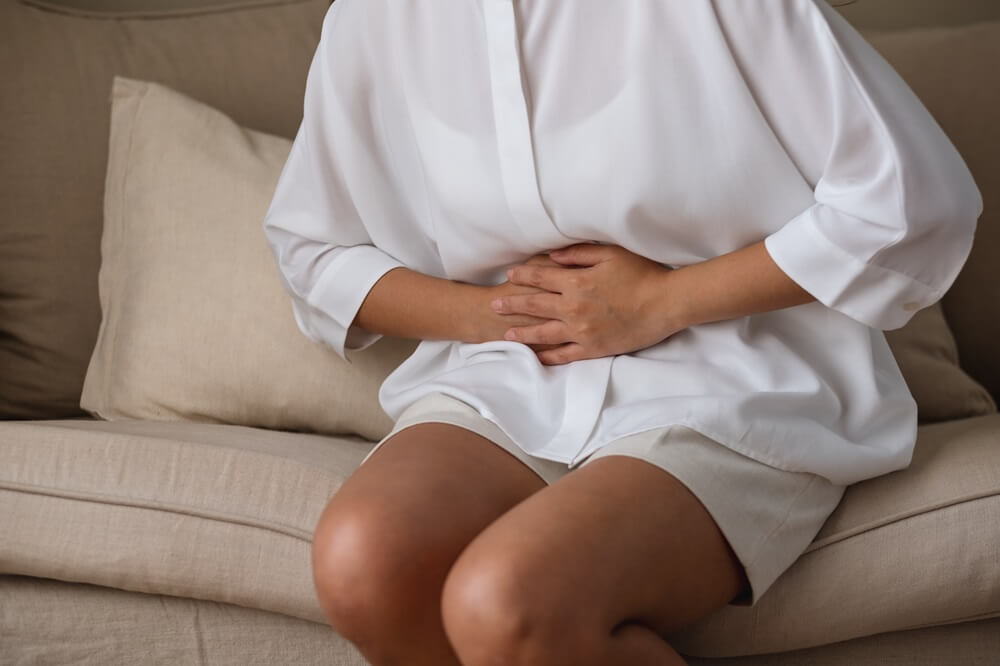

Discharge before a period can be a common occurrence for many individuals, often indicating changes in hormone levels and reproductive health. Understanding the causes, symptoms, and potential implications of discharge before your period is essential for maintaining overall well-being. In this comprehensive guide, we’ll explore everything you need to know about discharge before your period, including its causes, symptoms, and when to seek medical assistance.
Introduction
Discharge before a period, also known as premenstrual discharge, is a natural phenomenon experienced by many individuals with menstrual cycles. This discharge typically occurs in the days leading up to menstruation and is influenced by hormonal changes in the body. While discharge before a period is often normal, certain factors may indicate an underlying issue that requires medical attention. In this guide, we’ll delve into the various causes of discharge before your period, common symptoms to watch out for, and when it may be necessary to consult a healthcare professional.
1. Understanding the Menstrual Cycle
The menstrual cycle is a vital aspect of reproductive health for many women and people assigned female at birth. Understanding its intricacies is essential for recognizing normal and abnormal patterns in the body. The menstrual cycle is typically around 28 days long, though it can vary from person to person. It is divided into several phases:
- Menstrual Phase: This is when menstruation occurs, typically lasting from 3 to 7 days. The uterine lining sheds, resulting in menstrual bleeding.
- Follicular Phase: After menstruation, the body prepares for ovulation. The pituitary gland releases follicle-stimulating hormone (FSH), which stimulates the growth of follicles in the ovaries. One follicle will mature into an egg.
- Ovulation Phase: Mid-cycle, usually around day 14, the mature egg is released from the ovary. This is triggered by a surge in luteinizing hormone (LH). The egg travels down the fallopian tube, where it can be fertilized by sperm.
- Luteal Phase: After ovulation, the body produces more progesterone to prepare the uterine lining for a potential pregnancy. If fertilization does not occur, progesterone levels drop, leading to the start of the menstrual phase.
Throughout these phases, hormonal fluctuations significantly impact various bodily functions, including the production and characteristics of vaginal discharge.
2: Discharge as a Normal Occurrence
Vaginal discharge is a normal and healthy part of a functioning reproductive system. It serves several essential purposes, as detailed in this comprehensive guide on vaginal discharge.
- Cleaning: Discharge helps cleanse the vagina by flushing out dead cells and bacteria.
- Lubrication: It maintains vaginal moisture, which is crucial for comfort and sexual activity.
- Protection: Discharge contains antibodies and natural substances that help prevent infections.
The characteristics of vaginal discharge can vary throughout the menstrual cycle due to hormonal changes. Understanding these variations is key to recognizing what is normal for your body.
3: Types of Vaginal Discharge
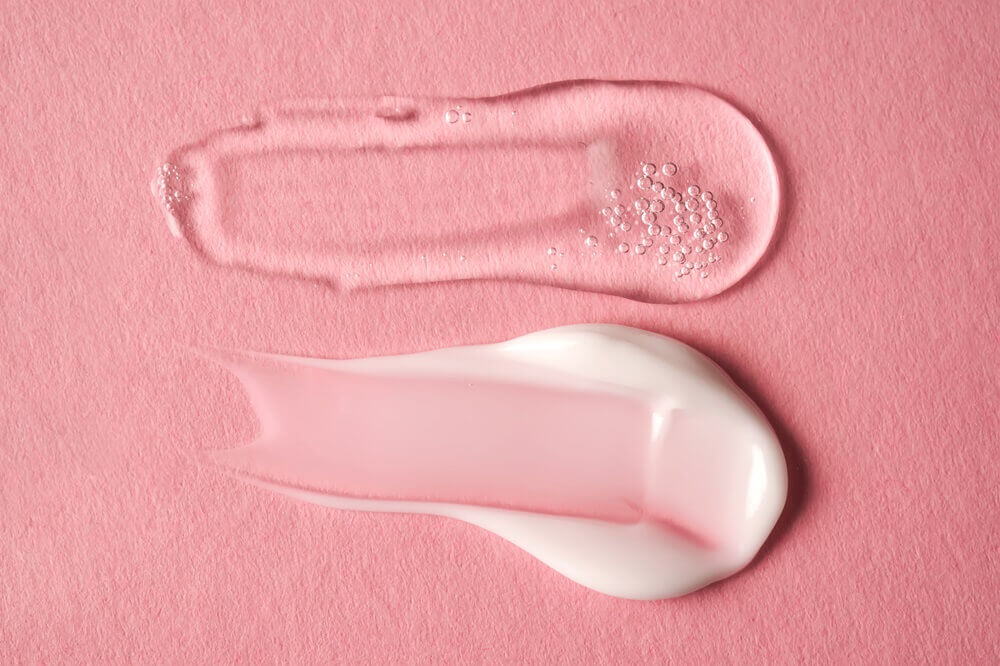

Vaginal discharge can appear in different forms, each indicating various stages of the menstrual cycle or potential health issues. Here are the common types:
- Clear and Watery: This type of discharge is often seen during ovulation, sexual arousal, or physical exercise. It is typically normal and indicates healthy lubrication.
- White and Creamy: Commonly observed at the beginning and end of the menstrual cycle. It is generally normal, although if accompanied by itching or odor, it could signal an infection like a yeast infection.
- Yellow or Green: This type of discharge might be normal if it is pale yellow and odorless. However, bright yellow or green discharge, especially if thick or accompanied by a foul smell, could indicate a bacterial or sexually transmitted infection (STI).
- Brown or Bloody: This can occur after menstruation, representing old blood being expelled. Spotting between periods or brown discharge could also be an early sign of pregnancy or perimenopause. Persistent brown or bloody discharge should be evaluated by a healthcare provider.
Understanding these variations helps in identifying normal versus abnormal discharge.
4: Discharge Before Period: What’s Normal?
Before menstruation, many individuals notice changes in their vaginal discharge. Common patterns include:
- Increased Discharge: Many experience an increase in discharge volume before their period due to the hormonal changes that prepare the uterus for menstruation.
- Thicker Consistency: The discharge may become thicker or creamier, resembling the texture of the lotion. This is influenced by the rise in progesterone during the luteal phase.
- White or Cloudy Appearance: Normal pre-menstrual discharge can appear white or cloudy without any strong odor. This is part of the body’s natural cycle and helps maintain vaginal health.
Understanding these typical patterns can alleviate concerns and help individuals identify what is normal for their bodies.
5: Causes of Discharge Before Period
Several factors can lead to changes in discharge before menstruation:
- Hormonal Changes: Fluctuations in estrogen and progesterone levels throughout the menstrual cycle are the primary drivers of changes in discharge consistency and volume.
- Infections: Bacterial vaginosis, yeast infections, and STIs can cause abnormal discharge. Infections often lead to additional symptoms such as itching, burning, or unpleasant odor.
- Health Conditions: Conditions such as polycystic ovary syndrome (PCOS), cervical polyps, or endometriosis can influence discharge patterns. These conditions may require medical evaluation and management.
Recognizing the underlying causes can help in seeking appropriate treatment if necessary.
6: Hormonal Influences on Discharge
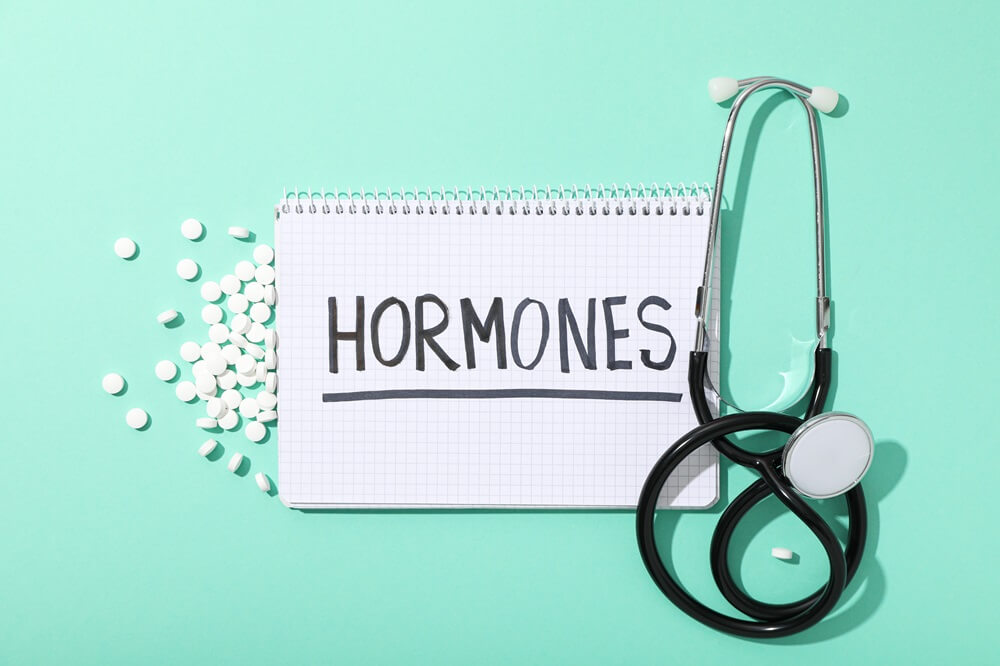

Hormonal fluctuations during the menstrual cycle significantly impact vaginal discharge:
- Estrogen: During the follicular phase of the menstrual cycle, rising estrogen levels lead to an increase in clear, stretchy discharge. This type of cervical mucus is highly conducive to sperm movement, facilitating easier travel through the cervix to potentially result in fertilization. Understanding these bodily changes can be crucial for fertility awareness and reproductive health. For more in-depth information on exploring our comprehensive guide on high estrogen symptoms and effective treatments.
- Progesterone: After ovulation, progesterone levels rise, causing the discharge to become thicker and less copious. This change helps create a barrier to protect the uterus if pregnancy occurs.
- Hormonal Imbalances: Imbalances caused by stress, illness, or hormonal disorders can result in abnormal discharge. It is essential to monitor any changes and consult with a healthcare provider if there are concerns.
Understanding these hormonal influences can provide insight into what is normal and when to seek medical advice.
7: Infections and Discharge
Infections can lead to abnormal vaginal discharge. Common infections include:
- Yeast Infections: Characterized by thick, white, cottage cheese-like discharge, yeast infections often cause itching and irritation. Over-the-counter antifungal treatments can be effective.
- Bacterial Vaginosis (BV): BV results in a thin, grayish discharge with a fishy odor. It is caused by an imbalance in vaginal bacteria and often requires prescription antibiotics.
- Sexually Transmitted Infections (STIs): STIs such as chlamydia, gonorrhea, and trichomoniasis can cause abnormal discharge. These infections typically need medical treatment and can have serious health implications if left untreated.
Identifying and treating infections promptly is crucial for maintaining reproductive health.
8: Other Health Conditions and Discharge
Certain health conditions can influence vaginal discharge:
- Cervical Polyps: Benign growths on the cervix can cause increased or unusual discharge, sometimes mixed with blood. Polyps often require removal by a healthcare provider.
- Fibroids: Non-cancerous tumors in the uterus can lead to heavy or prolonged discharge, especially around menstruation. Management may include medication or surgical options.
- Endometriosis: This condition, where uterine tissue grows outside the uterus, can cause abnormal discharge, pain, and heavy periods. Treatment may involve hormonal therapy or surgery.
Understanding these conditions and their impact on discharge can help individuals seek appropriate care and management.
9: Symptoms Accompanying Discharge
Abnormal vaginal discharge can be accompanied by various symptoms, indicating underlying issues:
- Itching and Burning: Often associated with infections like yeast infections or BV. These symptoms should be evaluated by a healthcare provider.
- Odor: A strong or unpleasant odor can signal an infection, such as BV or an STI. It is important to seek medical advice for proper diagnosis and treatment.
- Pelvic Discomfort: Pain or discomfort in the pelvic region, along with abnormal discharge, can indicate conditions such as endometriosis or fibroids. Medical evaluation is necessary for appropriate management.
Recognizing these accompanying symptoms can aid in early diagnosis and treatment of potential health issues.
10: Diagnostic Approaches
Healthcare providers use various diagnostic methods to identify the cause of abnormal vaginal discharge:
- Physical Exam: A thorough pelvic exam allows the provider to inspect the vaginal and cervical area for signs of infection or other abnormalities.
- Laboratory Tests: Swabs of vaginal discharge can be analyzed to identify bacterial or fungal infections, STIs, or other pathogens.
- Imaging Studies: Ultrasound or MRI may be used to detect structural issues such as fibroids, polyps, or ovarian cysts.
Accurate diagnosis is essential for effective treatment and management.
11: Treatment Options
Various treatment options are available for managing abnormal discharge:
- Medications: Antibiotics for bacterial infections, antifungal treatments for yeast infections, and antiviral medications for certain STIs are common treatments.
- Lifestyle Modifications: Maintaining good hygiene, wearing breathable cotton underwear, and avoiding douches or scented products can help prevent infections and irritation.
- Home Remedies: Some individuals find relief with natural remedies like probiotics, apple cider vinegar baths, or tea tree oil suppositories. It is important to consult a healthcare provider before trying home remedies.
Effective treatment requires a combination of medical intervention and healthy lifestyle choices.
12: Preventive Measures
Maintaining vaginal health and preventing abnormal discharge involves several strategies:
- Safe Sex Practices: Using condoms and having regular STI screenings can reduce the risk of infections.
- Good Hygiene: Regular washing with mild, unscented soap and water, and avoiding harsh products can help maintain the natural balance of vaginal flora.
- Diet and Hydration: A balanced diet rich in probiotics, staying hydrated, and avoiding excessive sugar can support vaginal health.
Preventive measures are key to reducing the risk of infections and maintaining overall reproductive health.
13: When to Seek Medical Help
It is important to seek medical attention for abnormal vaginal discharge if:
- Persistent Symptoms: If abnormal discharge lasts more than a few days or is recurrent, it should be evaluated by a healthcare provider.
- Severe Discomfort: Intense itching, burning, or pelvic pain requires medical assessment.
- Concerns About Reproductive Health: Any worries about fertility, pregnancy, or overall reproductive health should be discussed with a healthcare professional.
Timely medical intervention can address underlying issues and prevent complications.
14: Addressing Psychological Impact
Abnormal discharge can have a psychological impact, causing stress and anxiety:
- Understanding: Recognizing that discharge variations are often normal and that medical help is available for abnormalities can alleviate anxiety.
- Support: Talking to a trusted friend, partner, or healthcare provider about concerns can provide emotional support and reassurance.
- Education: Educating oneself about vaginal health and normal discharge patterns can empower individuals to make informed decisions about their health.
Addressing the psychological impact is an important aspect of overall well-being.
15: Empowering Women’s Health
Understanding vaginal discharge and its variations is essential for reproductive health:
- Knowledge: Educating oneself about the menstrual cycle and normal discharge patterns is empowering and helps in identifying potential issues early.
- Advocacy: Advocating for one’s health by seeking medical help when needed and discussing concerns openly with healthcare providers is crucial.
- Destigmatization: Breaking the stigma around discussions of vaginal health encourages open dialogue and promotes better health outcomes.
Empowering women with knowledge and support fosters a healthier, more informed approach to reproductive health.
In conclusion, understanding the menstrual cycle, recognizing normal and abnormal discharge patterns, and seeking appropriate medical care are essential components of maintaining reproductive health. By educating oneself and advocating for their health, individuals can navigate their reproductive journey with confidence and support.
About the author



Charlotte
Charlotte is a health, beauty and wellness blogger and a mother of two, who lives between India and London
- July 22, 2020
- August 3, 2020
- August 10, 2020
Health & Wellness
Understanding Low Blood Pressure: Symptoms & Causes Of Hypotension
Hypotension, commonly known as low blood pressure, occurs when the pressure of the blood flowing through your arteries is lower than normal.
Published
3 months agoon
April 22, 2024By
Charlotte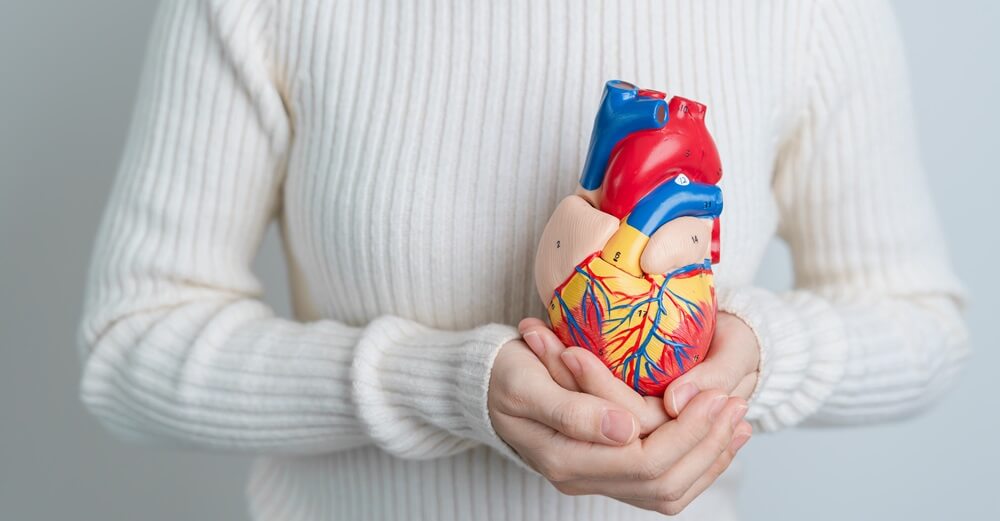

Hypotension, commonly known as low blood pressure, occurs when the pressure of the blood flowing through your arteries is lower than normal. While many people may think of high blood pressure as a significant health concern, hypotension can also have adverse effects on your well-being. In this article, we’ll delve into the symptoms of hypotension and what they could indicate for your health.
Symptoms of Hypotension
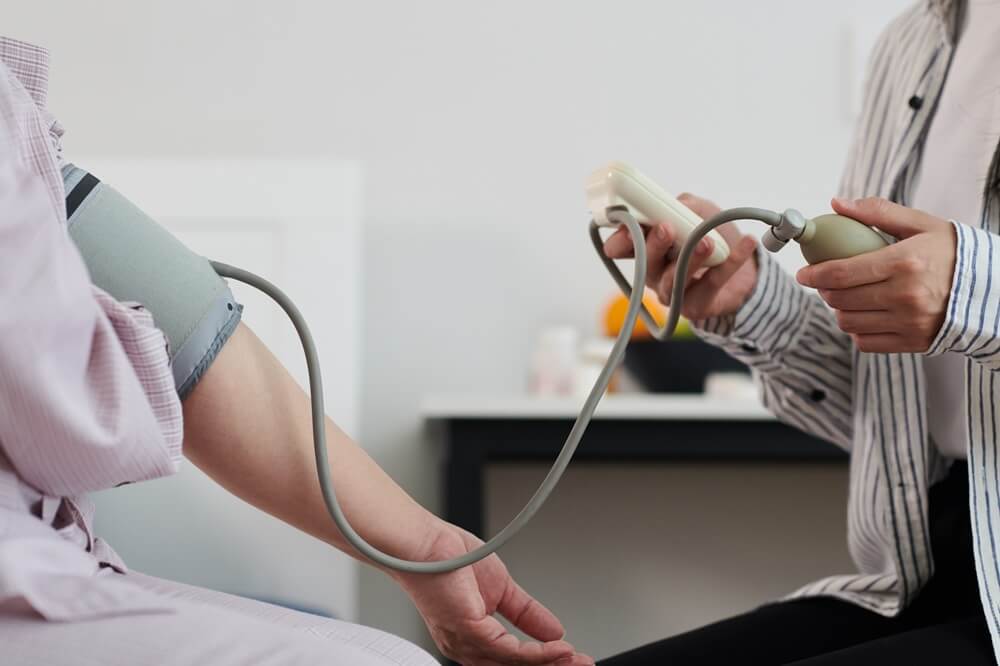
1. Dizziness and Lightheadedness
One of the most common symptoms of hypotension is dizziness or lightheadedness, especially when standing up suddenly. This sensation occurs because the brain is not receiving an adequate supply of oxygenated blood due to low blood pressure. Individuals may feel as though they are about to faint or lose consciousness.
2. Fainting or Syncope
In severe cases of hypotension, fainting, also known as syncope, may occur. This sudden loss of consciousness happens when the brain temporarily does not receive enough blood flow to function properly. Fainting episodes can be alarming and may result in injury if the individual falls during the episode.
3. Fatigue and Weakness
Low blood pressure can lead to feelings of fatigue and weakness, even after minimal physical exertion. This symptom occurs because the muscles and organs may not be receiving an adequate supply of oxygen and nutrients due to reduced blood flow. Individuals with hypotension may feel lethargic and have difficulty performing everyday tasks.
4. Blurred Vision
Vision changes, such as blurred vision or tunnel vision, can occur when blood pressure drops too low. Reduced blood flow to the eyes can impair vision temporarily, causing objects to appear fuzzy or unclear. Blurred vision associated with hypotension usually improves once blood pressure returns to normal levels.
5. Nausea and Cold, Clammy Skin
Some individuals with hypotension may experience nausea, especially when standing up or moving suddenly. Cold, clammy skin is another symptom that can accompany low blood pressure. These sensations occur because reduced blood flow to the skin affects its temperature and moisture levels.
6. Rapid, Shallow Breathing
In response to low blood pressure, the body may increase respiratory rate in an attempt to compensate for decreased oxygen delivery to tissues. Rapid, shallow breathing can occur as the body tries to maintain adequate oxygen levels despite reduced blood flow.
Causes Of Hypotension

1. Dehydration:
Dehydration occurs when the body loses more fluids than it takes in, leading to a decrease in blood volume and subsequently lowering blood pressure. This can happen due to inadequate fluid intake, excessive sweating, diarrhea, or vomiting.
2. Medications:
Certain medications, such as diuretics used to treat high blood pressure and heart conditions, as well as alpha and beta-blockers, can cause hypotension as a side effect. These medications may relax blood vessels or decrease the heart rate, resulting in reduced blood pressure.
3. Heart Conditions:
Various heart conditions can disrupt the heart’s ability to pump blood effectively, leading to low blood pressure. Conditions such as heart attacks, heart valve disorders, and cardiomyopathy can impair blood flow and result in hypotension.
4. Endocrine Disorders:
Disorders of the endocrine system, which regulates hormone production, can affect blood pressure. Conditions like Addison’s disease, characterized by insufficient adrenal hormone production, and hypothyroidism, where the thyroid gland doesn’t produce enough thyroid hormone, can lead to hypotension.
5. Nutritional Deficiencies:
Deficiencies in essential nutrients such as vitamin B12 and folate can result in anemia, a condition characterized by a low red blood cell count. Anemia reduces the blood’s ability to carry oxygen to tissues, leading to decreased blood pressure.
6. Pregnancy:
During pregnancy, hormonal changes and an increase in blood volume can cause blood vessels to relax and dilate, leading to lower blood pressure. While mild hypotension is common during pregnancy, severe drops in blood pressure may indicate underlying complications.
7. Neurological Conditions:
Neurological disorders affecting the autonomic nervous system, which controls involuntary bodily functions like blood pressure regulation, can result in hypotension. Conditions such as Parkinson’s disease, multiple system atrophy, and neuropathy can disrupt the body’s ability to maintain blood pressure.
8. Septic Shock:
Septic shock occurs when an overwhelming infection leads to a systemic inflammatory response, causing blood vessel dilation and leakage. This results in a significant drop in blood pressure, depriving organs of adequate blood flow and oxygen.
9. Allergic Reactions:
Anaphylaxis, a severe allergic reaction, can trigger a sudden drop in blood pressure known as anaphylactic shock. This life-threatening condition can occur in response to allergens such as foods, medications, or insect stings.
10. Blood Loss:
Significant blood loss from trauma, surgery, or internal bleeding can lead to hypovolemic shock, characterized by a rapid decrease in blood pressure. Without prompt medical intervention, hypovolemic shock can be fatal.
11. Vasovagal Syncope:
Vasovagal syncope is a common cause of fainting and occurs when a trigger, such as emotional stress or the sight of blood, causes a sudden drop in heart rate and blood pressure. This can lead to temporary loss of consciousness.
12. Age-related Changes:
As individuals age, changes in blood vessel elasticity and heart function can contribute to lower blood pressure. Blood vessels may become less flexible, and the heart may not pump as forcefully, leading to hypotension.
13. Orthostatic Hypotension:
Orthostatic hypotension occurs when blood pressure drops suddenly upon standing up from a sitting or lying position. This can happen due to dehydration, medications, or conditions affecting the autonomic nervous system.
14. Diabetic Neuropathy:
Diabetic neuropathy, a complication of diabetes, can damage nerves that control blood pressure regulation. This can result in orthostatic hypotension, where blood pressure drops upon standing, leading to dizziness or fainting.
15. Anemia:
Anemia, characterized by a deficiency of red blood cells or hemoglobin, can reduce oxygen delivery to tissues and organs, leading to low blood pressure. This can result from nutritional deficiencies, chronic diseases, or blood loss.
Understanding the various causes of hypotension is essential for accurate diagnosis and appropriate management. If you experience symptoms of low blood pressure, such as dizziness, fainting, or fatigue, it’s important to consult a healthcare professional for evaluation and treatment.
Conclusion
Recognizing the symptoms of hypotension is crucial for early detection and management of this condition. If you experience any of the symptoms mentioned above, especially fainting or severe dizziness, it is essential to seek medical attention promptly. Your healthcare provider can conduct a thorough evaluation to determine the underlying cause of your low blood pressure and recommend appropriate treatment options.
Remember, while occasional episodes of hypotension may be harmless, persistent or severe symptoms warrant medical intervention to prevent complications and improve your overall health and well-being. Stay informed about your blood pressure levels and consult with your healthcare provider if you have any concerns or questions about your cardiovascular health.
By understanding the symptoms of hypotension and taking proactive steps to address them, you can better manage your health and enjoy a higher quality of life.
About the author



Charlotte
Charlotte is a health, beauty and wellness blogger and a mother of two, who lives between India and London
- July 22, 2020
- August 3, 2020
- August 10, 2020
Health & Wellness
9 Effective Weight Gain Exercise: Build Muscle & Strength
While many people focus on weight loss, there are just as many individuals looking to gain healthy weight, whether for athletic performance, muscle building, or overall well-being.
Published
3 months agoon
April 20, 2024By
David

When it comes to achieving weight gain goals, incorporating the right exercise regimen into your routine is crucial. While many people focus on weight loss, there are just as many individuals looking to gain healthy weight, whether for athletic performance, muscle building, or overall well-being. In this comprehensive guide, we’ll explore the most effective weight gain exercises to help you reach your desired fitness goals.
Understanding the Basics of Weight Gain
Before diving into specific exercises, it’s essential to understand the principles and reasons behind weight gain. While consuming a calorie surplus is fundamental to gaining weight, engaging in resistance training exercises is equally important for promoting muscle growth and strength development. By combining proper nutrition with targeted exercises, you can achieve healthy and sustainable weight gain results.
Is it essential to go to the gym for weight gain?
No, going to the gym is not necessary for weight gain. While the gym can be a helpful environment for gaining muscle mass and strength, there are many other ways to achieve weight gain without it. Some effective strategies include:
- Home Workouts: You can perform bodyweight exercises such as push-ups, squats, lunges, and planks at home to build muscle and strength.
- Outdoor Activities: Engaging in outdoor activities such as hiking, cycling, swimming, and sports can help you build muscle and increase overall calorie intake.
- Resistance Training: Investing in a set of resistance bands or dumbbells for home use can provide you with the tools needed to perform strength training exercises to promote muscle growth.
- Calorie Surplus: To gain weight, you need to consume more calories than you burn. Focus on eating nutrient-dense foods that are high in calories, such as nuts, seeds, nut butter, avocados, whole grains, lean meats, and dairy products.
- Consistency: Consistency is key when it comes to weight gain. Stick to a regular eating schedule and ensure that you are consistently consuming enough calories to support your goals.
- Rest and Recovery: Adequate rest and recovery are essential for muscle growth. Make sure to get enough sleep each night and allow your muscles time to recover between workouts.
Ultimately, while the gym can be a convenient and effective option for gaining weight, it is not the only way. By focusing on proper nutrition, consistent exercise, and adequate rest, you can achieve your weight gain goals without needing to go to the gym.
9 weight gain exercise
1. Squats


Squats are a foundational compound exercise that engages the lower body muscles, including the quadriceps, hamstrings, and glutes. By performing squats with proper form and gradually increasing resistance, you can build lower body strength and enhance muscle mass.
How to do it
- Stand with your feet shoulder-width apart and toes slightly turned out.
- Engage your core, keep your chest up, and lower your body by bending your knees and pushing your hips back.
- Descend until your thighs are parallel to the ground, ensuring your knees stay in line with your toes.
- Push through your heels to return to the starting position.
- Keep your back straight throughout the movement and avoid leaning forward excessively.
2. Deadlifts


Deadlifts are another essential compound exercise that targets multiple muscle groups simultaneously, such as the back, legs, and core. Incorporating deadlifts into your routine helps develop overall strength and promotes muscle growth throughout the body.
How to do it
- Stand with your feet hip-width apart, toes under the barbell, and knees slightly bent.
- Bend at your hips and knees to grip the barbell with an overhand grip, hands slightly wider than shoulder-width apart.
- Keep your back straight, chest up, and shoulders pulled back.
- Lift the barbell by straightening your hips and knees, ensuring the barbell stays close to your body.
- Lower the barbell back to the ground by reversing the movement, keeping your back straight and core engaged.
3. Bench Press


The bench press is a classic upper body exercise that primarily targets the chest, shoulders, and triceps. By including bench presses in your regimen and progressively adding weight, you can strengthen your upper body and achieve better muscle definition.
How to do it
- Lie flat on a bench with your feet planted on the floor.
- Grip the barbell slightly wider than shoulder-width apart, arms fully extended.
- Lower the barbell to your chest in a controlled manner while keeping your elbows tucked close to your body.
- Press the barbell back up to the starting position, extending your arms fully.
- Keep your back flat against the bench and maintain a stable base with your feet.
4. Pull-Ups


Pull-ups are an effective bodyweight exercise for targeting the back, biceps, and forearms. This compound movement is crucial for building upper body strength and improving pulling power.
How to do it
- Grip the pull-up bar with your hands slightly wider than shoulder-width apart, palms facing away from you.
- Hang from the bar with your arms fully extended and engage your core.
- Pull yourself up towards the bar by engaging your back muscles and bending your elbows.
- Lower yourself back down to the starting position in a controlled manner, fully extending your arms.
- Avoid swinging or using momentum to complete the movement.
5. Lunges


Lunges are unilateral exercises that engage the quadriceps, hamstrings, and glutes while enhancing balance and stability. Incorporating lunges into your routine helps strengthen the lower body and reduce muscle imbalances.
How to do it
- Stand tall with your feet hip-width apart.
- Take a step forward with one foot and lower your body until both knees are bent at a 90-degree angle.
- Keep your front knee aligned with your ankle and your back knee hovering just above the ground.
- Push through your front heel to return to the starting position.
- Repeat on the other side, alternating legs for each rep.
6. Bent-Over Rows


Bent-over rows are excellent for targeting the muscles of the back, including the latissimus dorsi, rhomboids, and traps. Performing bent-over rows with proper form and a full range of motion can lead to a strong and well-defined back.
How to do it
- Stand with your feet shoulder-width apart, knees slightly bent, and hold a barbell or dumbbells with an overhand grip.
- Hinge at your hips, keeping your back straight and chest up, until your torso is parallel to the ground.
- Pull the weight towards your lower chest by bending your elbows and squeezing your shoulder blades together.
- Lower the weight back down in a controlled manner, maintaining tension in your back muscles throughout the movement.
7. Overhead Press


The overhead press targets the deltoid muscles of the shoulders, as well as the triceps and upper chest. Including overhead presses in your routine helps develop shoulder strength and improve overall upper body power.
How to do it
- Stand tall with your feet hip-width apart and hold a barbell or dumbbells at shoulder height with palms facing forward.
- Press the weight overhead by extending your arms fully, keeping your core engaged and avoiding arching your back.
- Lower the weight back down to shoulder height in a controlled manner.
- Keep your elbows slightly in front of your body throughout the movement to prevent strain on your shoulders.
8. Dumbbell Flyes


Dumbbell flyes are isolation exercises that primarily target the chest muscles. Focusing on controlled movements and the mind-muscle connection during flyes can effectively isolate the chest and promote muscle growth.
How to do it
- Lie flat on a bench with a dumbbell in each hand, arms extended directly above your chest.
- Lower the dumbbells out to the sides in a wide arc motion while keeping a slight bend in your elbows.
- Keep your elbows slightly bent throughout the movement and focus on feeling a stretch in your chest muscles.
- Return the dumbbells to the starting position by squeezing your chest muscles together.
9. Leg Press


The leg press machine targets the quadriceps, hamstrings, and glutes. Incorporating leg presses into your routine can effectively stimulate lower body muscle growth and enhance overall leg strength.
How to do it
- Sit on the leg press machine with your back against the pad and your feet flat on the footplate.
- Grasp the handles on the sides of the machine for stability.
- Push the footplate away from you by extending your legs, straightening your knees.
- Lower the footplate back to the starting position by bending your knees.
- Repeat for the desired number of repetitions.
Key Points to Keep in Mind:
- Warm up properly before starting your workout to prevent injury and prepare your muscles for exercise.
- Use proper form and technique for each exercise to maximize effectiveness and minimize the risk of injury.
- Gradually increase the weight or resistance as you become stronger to continue challenging your muscles and promoting growth.
- Listen to your body and rest as needed between sets and exercises to prevent overtraining and allow for proper recovery.
- Stay hydrated and fuel your body with nutritious foods to support muscle growth and overall health.
By following these steps and keeping these key points in mind, you can safely and effectively perform the exercises mentioned above to build muscle and strength.
Understand, why you cant gain weight?
There could be several reasons why someone may struggle to gain weight:
- Insufficient Caloric Intake: One of the most common reasons for difficulty in gaining weight is not consuming enough calories. To gain weight, you need to consume more calories than you burn through daily activities and exercise.
- High Metabolism: Some individuals naturally have a faster metabolism, which means they burn calories more quickly. This can make it challenging to maintain a calorie surplus required for weight gain.
- Poor Appetite: A lack of appetite or feelings of fullness can lead to inadequate calorie intake. Factors such as stress, medication, or certain medical conditions can affect appetite.
- Underlying Health Conditions: Certain medical conditions, such as thyroid disorders, gastrointestinal issues, or hormonal imbalances, can affect metabolism and weight gain.
- Lack of Muscle Mass: Gaining weight in the form of muscle requires resistance training to stimulate muscle growth. Without regular strength training exercises, weight gain may primarily consist of fat rather than muscle.
- Inconsistent Eating Habits: Irregular meal patterns or skipping meals can prevent you from consuming enough calories throughout the day to support weight gain.
- Stress and Anxiety: High levels of stress or anxiety can affect appetite and digestion, leading to decreased calorie intake and potential weight loss.
- Genetics: Genetic factors can influence metabolism, body composition, and appetite, making it more challenging for some individuals to gain weight than others.
If you’re struggling to gain weight, it’s essential to consult with a healthcare professional or registered dietitian to identify any underlying issues and develop a personalized plan to support healthy weight gain.
Final words
Incorporating a variety of effective weight gain exercises into your workout routine is essential for building muscle mass and strength. By focusing on compound movements that target multiple muscle groups and incorporating isolation exercises to target specific muscles, you can achieve your weight gain goals and develop a strong, muscular physique.
Ready to take your fitness journey to the next level? Be sure to include these effective weight gain exercises in your routine and track your progress over time. With dedication and consistency, you can achieve the physique you’ve always desired.
About the author
David is a blogger for over 15 years now and writes on health and wellness. The articles are focused to give extensive information about the subject.
- June 30, 2020
- June 30, 2020
- June 30, 2020
Trending
-



 Health & Wellness4 months ago
Health & Wellness4 months agoRosemary Leaves For Hair: Benefits and How To Use It
-



 Love & Relationship2 months ago
Love & Relationship2 months agoUnderstanding the Psychology Behind Infidelity: Why Do People Cheat in Relationships?
-



 Health & Wellness3 months ago
Health & Wellness3 months agoUnderstanding Low Blood Pressure: Symptoms & Causes Of Hypotension
-



 Health & Wellness4 months ago
Health & Wellness4 months agoSay Goodbye to Double Chin: 8 Effective Double Chin Exercises
-



 Food & Recipes4 months ago
Food & Recipes4 months agoBest Juices To Boost Immune System For a Stronger Defense
-



 Health & Wellness4 months ago
Health & Wellness4 months agoLow Porosity Hair: Important Things You Need To Know
-



 Food & Recipes2 months ago
Food & Recipes2 months agoWild Lettuce: Know Wild Lettuce Benefits, Side Effects & More
-



 Health & Wellness3 months ago
Health & Wellness3 months ago9 Effective Weight Gain Exercise: Build Muscle & Strength





